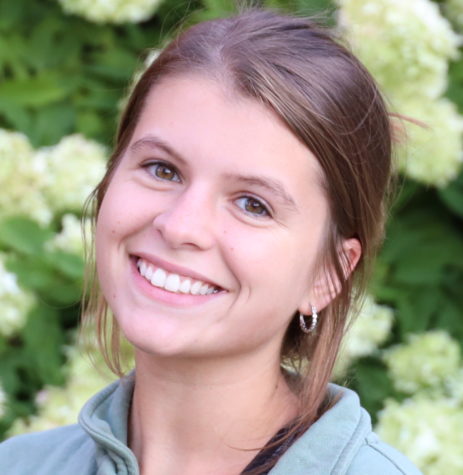What you need to know about CWRU’s Reproductive Health Task Force
October 28, 2022
Following the Supreme Court’s overturning of Roe v. Wade in the Dobbs v. Jackson Women’s Health Organization decision, many institutions around the country have been making efforts to ensure their students still have access to reproductive healthcare, including Case Western Reserve University.
Following the Supreme Court’s decision, President Eric Kaler sent an email to the CWRU community on June 24 announcing CWRU’s continued dedication to ensuring access to reproductive healthcare: “At this moment, we want to emphasize that Case Western Reserve is dedicated to providing all members of our community the support and information they need. We also are committed to the health and well-being of every member of our community—today and every day.”
In that same email, President Kaler announced that the administration would continue to keep the campus community informed as to changes in Ohio legislation regarding abortion and how CWRU would be approaching these potential changes.
Almost a month later on July 18, the CWRU community received another email from President Kaler outlining a new website for reproductive health resources. This website is divided into three separate sections, one for student resources, one outlining membership for the Reproductive Health Task Force and another for faculty and staff resources. In addition, background and further information on the ruling is also provided to help with context and furthering knowledge for students and staff on this specific topic.
Eleven days later on July 29, President Kaler announced the creation of the Reproductive Health Task Force and outlined the members of faculty and staff involved and leading this effort. Appointed to co-chair this organization are chief of staff Katie Brancato and deputy general counsel Gabrielle Lincoff. Student representation also matters, with Undergraduate Student President Ananya Hari acting as a sitting member.
In this same email, Kaler outlined the new Student Health Emergency Fund, which “will provide financial assistance with health-related travel, lodging and care.” This was made to help ensure that, despite potential changes to Ohio’s laws regarding abortion and reproductive healthcare, CWRU students would theoretically still have the ability to access this care regardless of socioeconomic status.
Then, in September, the Task Force hosted a webinar for members of the CWRU community outlining their role and resources offered through their efforts. These include the aforementioned Student Health Emergency Fund; Reproductive Health Cards, which outline resources for students, faculty and staff; and Reproductive Health Kits, found in vending machines in the Flora Stone Mather Center for Women, the LGBT Center (both in Tinkham Veale University Center), the Office of Multicultural Affairs (Sears 409), the Office of Postdoctoral Affairs (Tomlinson Hall 215) and the Department of Athletics (Veale Convocation, Recreation and Athletic Center). The kits include condoms, pregnancy tests, Plan B contraception and related items. This webinar, coupled with an email to the community, also discussed other health-related vending machines located in Fribley Commons, Leutner Pavilion and the Health Education Campus that contain the aforementioned items along with ibuprofen and cough drops. As an added bonus, all of these items are free when you swipe your CaseID and your selection will remain confidential.
This week, the Reproductive Health Task Force updated the CWRU community again, outlining Ohio updates and further CWRU efforts surrounding these changes. They announced the installation of the aforementioned vending machines and also announced that the “Task Force’s Academic Freedom Working Group is hosting three upcoming panel discussions on various aspects of reproductive health: religious perspectives, history, and workplace implications of U.S. Supreme Court’s June 24 ruling on abortion,” on Oct. 31, Nov. 8 and Nov. 30 (If you are interested in attending one of these sessions, you can sign up on CampusGroups).
These resources are incredibly important to CWRU students, especially with an impending election threatening the access to reproductive healthcare for citizens of Ohio and surrounding states. While these steps are incredibly important in helping the immediate CWRU community, not every community is so fortunate to have this access. Further, if you would like to get involved with the Task Force, email taskforcechairs@case.edu with questions, comments or suggestions regarding this issue.
Finally, if you would like to get involved in the overall governance process regarding access to reproductive healthcare, make sure to vote in this impending election, no matter your personal views on the matter. Make your voice heard in this larger sphere of influence and cast your ballot.



